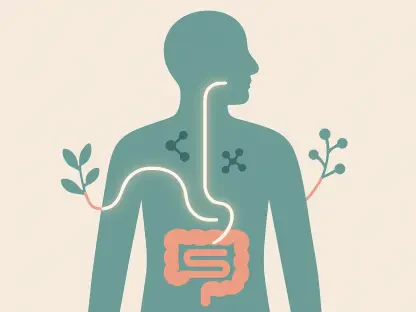What happens when the joy of expecting a child is overshadowed by the shadow of life-threatening heart conditions? For countless women with cardiovascular disease, this is not a hypothetical question but a harsh reality that they face every day. Across the globe, maternal heart disease stands as the leading cause of non-obstetric deaths during pregnancy, casting a long shadow over what should be a time of hope. Yet, a beacon of change has emerged with the updated European Society of Cardiology (ESC) Guidelines, unveiled at this year’s ESC Congress. These recommendations promise a revolutionary approach, placing women’s choices and safety at the forefront of high-risk pregnancy care.
The significance of this development cannot be overstated. With cardiovascular issues complicating up to 4% of pregnancies worldwide—a figure that surges to 10% when factoring in hypertensive disorders—these guidelines address a critical public health crisis. They aim to tackle the heartbreaking statistic that 33% of pregnancy-related deaths stem from heart conditions, with a staggering 68% deemed preventable by the World Health Organization. This story is about more than medical protocols; it’s about empowering women to navigate the perilous intersection of motherhood and heart disease with dignity and informed choice.
The Rising Threat of High-Risk Pregnancies
For women with heart conditions, pregnancy is often a high-stakes journey. The body undergoes dramatic changes, including a 30% to 50% increase in cardiac output starting as early as the sixth week. Such shifts can trigger severe complications like heart failure or dangerous arrhythmias, especially in those with pre-existing conditions. This physiological burden transforms an already complex process into a potential life-or-death scenario, amplifying the urgency for specialized care.
Beyond the body’s challenges, the emotional toll is immense. Many women face the agonizing dilemma of pursuing a family while risking their health, often without clear guidance. The prevalence of these struggles is growing as more individuals with congenital heart defects or histories of medical interventions like transplantation reach reproductive age. This trend underscores a pressing need for updated strategies to safeguard maternal health without sidelining personal aspirations.
Breaking Down Barriers with Innovative Guidelines
The latest ESC Guidelines mark a pivotal shift by dismantling outdated restrictions and embracing a patient-centered ethos. Gone are the days of blanket prohibitions against pregnancy for conditions like pulmonary arterial hypertension. Instead, a shared decision-making model takes center stage, fostering honest conversations between women and their healthcare providers to weigh risks against desires. This approach ensures that no one is left in the dark about their options.
Further innovations include personalized risk assessments that account for a spectrum of factors, from medical history to socioeconomic circumstances. The guidelines also advocate for early discussions, particularly for teens with congenital heart issues, given the alarming 45% rate of unintended pregnancies in this group. Additionally, updated medication advice prevents the unnecessary withholding of critical treatments like statins, striking a balance between maternal and fetal well-being. Each of these changes represents a tailored step toward safer pregnancies.
Perhaps most transformative is the push for multidisciplinary Pregnancy Heart Teams. Comprising cardiologists, obstetricians, and other specialists, these units in hospitals are linked to reduced maternal mortality and fewer readmissions. Such coordinated care offers a lifeline, ensuring that every aspect of a woman’s health is monitored through the pregnancy journey. These advancements collectively redefine what is possible for high-risk cases.
Expert Voices Driving Change
Behind these groundbreaking guidelines are insights from some of the field’s brightest minds. Professor Julie De Backer, co-chairperson of the guideline task force, emphasizes that shared decision-making “allows women to make reproductive choices with appropriate psychosocial support.” Her words highlight a profound respect for individual agency, ensuring that clinical care aligns with personal values.
Echoing this sentiment, Professor Kristina Hermann Haugaa stresses the importance of timely referrals to Pregnancy Heart Teams while warning against overburdening resources with unnecessary cases. Published in the European Heart Journal and backed by the European Society of Gynecology, these recommendations carry the weight of international consensus. Their credibility is further bolstered by real-life stories, like that of a young mother with a congenital heart defect who, under specialist guidance, safely welcomed her child—a testament to the human impact of such expertise.
Practical Tools for Navigating High-Risk Journeys
Empowerment under the new ESC Guidelines translates into actionable steps for women and clinicians alike. One key recommendation is early counseling, ideally beginning in adolescence for those with known heart conditions. This proactive approach allows for safe planning well before conception, minimizing unexpected risks and fostering confidence in future decisions.
Another vital strategy involves engaging with Pregnancy Heart Teams. Women are encouraged to seek referrals to these specialist groups for comprehensive care across all pregnancy stages. Simultaneously, understanding updated medication options is crucial—discussing treatment plans with providers ensures that health needs are met without compromising fetal safety. These practical measures provide a clear framework for tackling the complexities of high-risk pregnancies.
Advocacy also plays a central role. The guidelines urge women to voice their preferences and concerns through the shared decision-making model, ensuring that choices reflect both medical advice and personal priorities. This blend of clinical support and individual input equips both patients and healthcare providers with the tools needed to face challenges head-on, transforming uncertainty into informed action.
A Path Forward for Maternal Health
Looking back, the journey to redefine care for women with cardiovascular disease during pregnancy was marked by a historic shift with the release of the latest ESC Guidelines. They stood as a powerful response to the alarming reality of maternal mortality, offering a framework that honored autonomy while prioritizing safety. The emphasis on shared decisions, specialist teams, and tailored assessments reshaped the landscape of high-risk pregnancy management.
Moving ahead, the focus must remain on expanding access to these multidisciplinary resources, ensuring that every woman, regardless of location or circumstance, can benefit from such care. Clinicians are encouraged to integrate these recommendations into practice, while policymakers should champion initiatives that bolster support systems for maternal health. As a society, the commitment to reducing preventable deaths—68% of cardiovascular-related maternal fatalities—demands sustained effort and collaboration, paving the way for safer motherhood experiences in the years to come.









